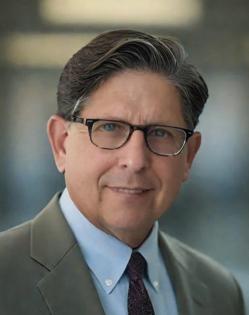POINT: How summer vacation became a burden, not a break
Published in Op Eds
Contrary to a widely held perception, public school summer vacations are not getting shorter. And that’s a shame.
Despite some movement toward “balanced schedules” that include more breaks during the school year, summer vacations still average 10 weeks, unchanged from 20 years ago. Trimming back this mind-numbing break would improve our kids’ scholastic performance and take an onerous burden off middle- and lower-income families.
The notion of the shrinking summer break stems from a growing shift in its timing. When I was a kid, summer vacation ran from early June to the day after Labor Day. This year, my daughter started school on August 4. A neighboring school district resumed classes on July 31. School officials say the early start allows them to complete the semester and conduct final exams before the winter holiday. I suspect they also want to get their students prepped for the standardized testing that often takes place in the fall and can affect the school system’s federal funding.
There is ample evidence that lengthy summer breaks adversely affect learning. This “summer slide” may cost elementary school students 20 percent of their reading ability and 27% of their math skills, according to a 2020 study by educational consultants NWEA.
Another study found that kids from lower-income households slip further behind than their classmates from more affluent homes. Nine out of 10 teachers surveyed said they routinely had to re-teach material from the previous school year at the start of the new year.
In this era of global competition, it’s worth noting that summer breaks are among the longest in the world. In keeping with its grinder culture, South Korea gives kids four weeks off. Students in the United Kingdom get six weeks, and there is some pressure to reduce that. Even the notoriously indolent French keep summer break to eight weeks. Our 10 weeks puts us in the company of such economic powerhouses as Italy, Portugal, Australia and Russia.
Proponents of the status quo often argue that these lazy, hazy, crazy days of summer give children a chance to “learn alternatively.” This is a fancy way of saying today’s youngsters will do all the things earlier generations of kids did to kill summer boredom — build tree forts and go-karts, ride bikes to a friend’s house to play kick the can, and get into BB gun battles. That’s nostalgia at its worst.
It’s a struggle to get many of today’s suburban kids off the sofa, let alone outside. The following is a 100% accurate non-ironic quote from my high school-age son: “Well, what am I supposed to do if I can’t be on my phone? I honestly have no idea.”
When children do leave the house, it's often under the ridiculous strictures and surveillance of hyper-vigilant and hyperventilating moms and dads. Thus, for most parents, summer has become an endless, exhausting, expensive exercise in providing enough supervised structure to keep kids off their digital devices and out of trouble.
For families with financial means, that typically means a week or two of vacation travel and several weeks of summer camp. Even with that level of investment, these parents will still be engaged in endless, losing, low-intensity warfare over screen time.
Interestingly, the affluent parents of an earlier generation gave us the current summer vacation model. While the labor needs of small farmers were a factor, it was early 20th-century urban dwellers with enough money to leave the sweltering cities for the summer who ultimately drove the implementation of a long break. By the time air conditioning became common in homes and schools, summer vacation was inextricably woven into American life.
Now, as then, families with fewer resources often struggle to find summer child care, relying on a patchwork of family members, babysitters, low-cost camps and missed workdays.
Sadly, we are unlikely to make the common-sense move to shorten summer break. The Vacation Industrial Complex is just too powerful. Resorts, camp operators, amusement parks, airlines, and tour operators contribute mightily to the economy and have commensurate political juice. Example: three Maryland governors have attempted to ban pre-Labor Day school starts to protect businesses in the state’s seaside tourist towns.
Of course, what happens at your house is always more important than what happens at the statehouse. Resolve next summer to create a “stop the slide” effort by scheduling time for reading and a few math worksheets. Students will still have plenty of time to complain about boredom and video game limits, and when school starts, they won’t be quite so far behind those South Korean kids.
_____
ABOUT THE WRITER
Randall Bloomquist is the owner of Bloomquist Media, a writing and editorial services firm. He wrote this for InsideSources.com.
_____
©2025 Tribune Content Agency, LLC

























































Comments